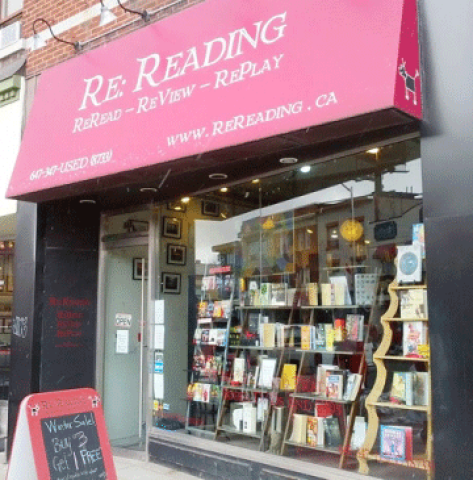
Patterson, best known for penning the Alex Cross series, recently pledged $1 million of his own money to independent book stores across the U.S. The funds will be distributed in $2,000-to-$15,000 parcels throughout 2014 to bricks-and-mortar shops that either applied for grants or simply landed on Patterson’s radar through recommendation or happenstance.
The criteria for receiving funding is straightforward: the shops must be serving their communities by promoting literature and literacy at a grassroots level. The $267,000 so far distributed to 55 recipient stores will underwrite projects as diverse as posting in-store events online, shop upgrades, and the purchase of a van for mobile author events and book fairs.
“Every day, booksellers are out there saving our country’s literature,” Patterson is quoted as saying in a press release issued by his publisher, the Hachette Book Group.
“The work they do to support schools and the rest of their communities leaves a lasting love of reading in children and adults. I believe their work is vital to our future as a country. What are we if we don’t have our own literature? I couldn’t be happier to, very humbly, support booksellers in their mission. Maybe that’s because it’s my mission as well.”
Would a similar initiative work north of the 49th parallel? “I think the problems we have are bigger than that,” long-time books retailer Ben McNally, owner/operator of Toronto’s eponymous Ben 
Indeed, since news of Patterson’s largesse emerged, no less a media powerhouse than the New York Times has run with the story, interviewing numerous recipients and dubbing Patterson a “Daddy Warbucks” to the beleaguered independent book store industry.
“The current health of independent bookstores is mixed,” the Times notes in its story from February 19. “While some have benefited from the disappearance of the Borders chain in 2011 and a shrinking Barnes & Noble, the stores have been hit especially hard with consumers switching from paper copies to e-books.
“And though many communities remain loyal to their shops, and the American Booksellers Association says its membership has recently grown, the online discounters have wreaked havoc on the independent bookseller’s business model.”
None more so than Amazon.com, according to sources interviewed by Samaritanmag, who cite the online retailer’s rock-bottom prices and lack of human touch as particularly sinister to the health of the book business.
“We have people who come to us for recommendations and then go buy their book on Amazon. If they keep doing that, sooner or later we’re not going to be here. And then there is no brain-trust about books,” Christopher Sheedy, owner of Toronto used book store Re:Reading, tells Samaritanmag.
“Amazon allows people to pay for their reviews, they take down bad reviews, and their book recommendations are done by algorithm of purchase, so ‘You bought this so you might like this.’ And it’s often ridiculous. I was looking up (Prince of Tides novelist and memoirist) Pat Conroy and Amazon 
McNally and Sheedy both applaud Patterson’s gesture and agree it would be swell if a Canadian author of similar stature such as Margaret Atwood or Douglas Coupland made the same offer here, with Sheedy adding, “I would more value the discussion than the money because $2,500 isn’t really going to save a store that’s in trouble.”
Both proprietors also point to Europe where fixed book price agreements mean that all retailers — from mom and pop operators to online giants — must sell new books at the same price for a specific period of time.
According to Wikipedia, fixed book price laws exist in Austria, Denmark, Germany, Greece, Hungary, Italy, The Netherlands, Portugal, and Spain while in the UK, book price are kept fixed by an agreement between the publishers and the booksellers dubbed the Net Book Agreement.
In France, the longstanding Lang Law establishes a fixed price for books sold nationally, limiting price discounts on them. In this scenario, the publisher decides on a price for its book and prints it on the back and booksellers are not allowed to sell a book for a discount of more than five percent below the publisher's price.
The Lang Law — so named for Jack Lang, the former French Minister of Culture who spearheaded the legislation in the early 1980s — was a response to small booksellers who feared competition from big stores, a notion that seems almost quaint given that Costco and Walmart are present in Europe but positively ubiquitous in North America.
In 2011, France updated the Lang Law to include e-book sales as well. Still, even here in the land of Big Box retailers, there is light on the horizon.
“In the U.S. it seems as though younger people are opening bookstores in major centers,” McNally notes, “though that doesn’t seem to be happening here, probably because the real estate situation is vastly different. And it’s really hard to make money when the product is getting cheaper all the time. Your costs aren’t getting cheaper — your hydro, taxes and wages aren’t going down concomitantly.”
As Sheedy notes, while the Internet has permitted the steady march of Amazon.com, it has also opened the door to expanded word-of-mouth. “I use social media to tell people about my store and the reach that can have is astounding compared to traditional advertising,” he says.
“There are stores in Toronto without a website. I certainly have a website, plus Facebook and Twitter. I opened five years ago and there have been, I think, six or eight stores go out of business in that time. And 2013 was my best year. Location is obviously important but I also attribute social media to that.”
“Book stores and by extension publishers are, in many ways, the lifeblood of a culture. So anything that is a danger to publishing is a danger to our culture,” McNally says.
“Nobody promised me a living in my business model. But if the forces that might put me out of business eventually put Canadian publishing out of business, then that’s a danger to all of us. That’s really the big concern. And if the only way for publishers to sell books is through somebody like Amazon well… that’s not a good thing.”
Air Jordan 1 Retro High OG 'Chicago' White and Black-Varsity Red For Sale